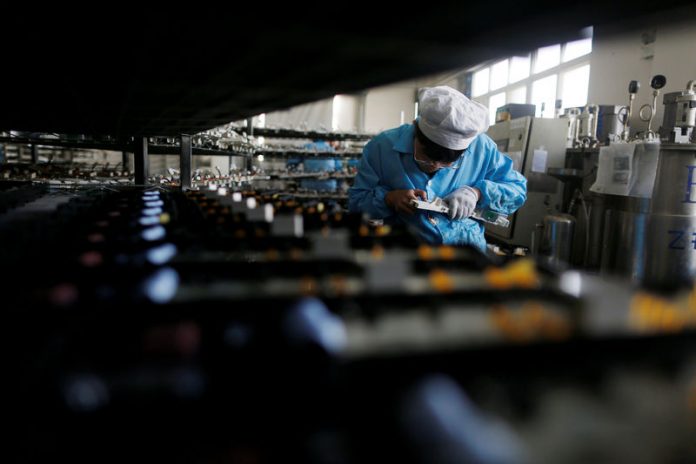TOKYO: U.S. tariffs took a toll on factory activity across Asia, overshadowing a surprisingly upbeat performance in China, private surveys showed on Monday, keeping pressure on policymakers to underpin the region’s fragile economic recovery.
The outcome reinforces concerns that manufacturers in Asia, which have been frontloading shipments to beat higher U.S. levies, will face pressure on profits as exports weaken in the months ahead, analysts say.
Export powerhouse Japan, South Korea and Taiwan all saw manufacturing activity shrink in August, the surveys showed, underscoring the challenge Asia faces in weathering the hit from President Donald Trump’s tariffs.
“It’s a double-whammy for Asian economies, as they face higher U.S. tariffs and competition from cheap Chinese exports,” said Toru Nishihama, chief emerging market economist at Dai-ichi Life Research Institute.
“We’ll likely see the hit from U.S. tariffs intensify going forward, with countries reliant on U.S.-bound shipments like Thailand and South Korea particularly vulnerable,” he said.
The RatingDog China General Manufacturing PMI, compiled by S&P Global, rose to 50.5 in August from 49.5 in July, beating market forecasts and exceeding the 50-mark that separates growth from contraction.
The reading confounds an official survey on Sunday that showed China’s manufacturing activity shrank for a fifth straight month in August on weak domestic demand and uncertainty over the outcome of Beijing’s trade deal with the U.S.
Taken together, the surveys suggest the world’s second-biggest economy is still under significant strain.
“Notably, the manufacturing sector is helping the recovery, but this rebound is patchy,” said Yao Yu, founder of RatingDog.
“With weak domestic demand, potentially overstretched external orders, and slow profit recovery, the durability of the improvement depends on whether exports truly stabilise and whether domestic demand can pick up pace.”
The S&P Global Japan Manufacturing Purchasing Managers’ Index (PMI) stood at 49.7 in August, improving from 48.9 in July but staying below the 50 threshold for two straight months.
New orders from overseas fell at the fastest pace since March 2024 as companies battled weak demand from key markets like China, Europe and the U.S., the Japan PMI survey showed.
South Korea’s factory activity also shrank with the S&P Global PMI standing at 48.3 in August, up from 48.0 in July but contracting for the seventh straight month.
Both countries struck a trade deal with the U.S. that eased, but not removed, the pressure on their export-reliant economies.
Tokyo and Washington agreed in July to lower U.S. tariffs on Japanese goods, including to 15% from 27.5% for Japan’s mainstay automobiles, though uncertainties remain around the implementation of the deal’s terms.
South Korea also signed an agreement in July that lowered tariffs to 15% from a steeper 25% duty, effective from August.
Manufacturing activity in Taiwan weakened in August, while that of the Philippines and Indonesia expanded, the surveys showed.




